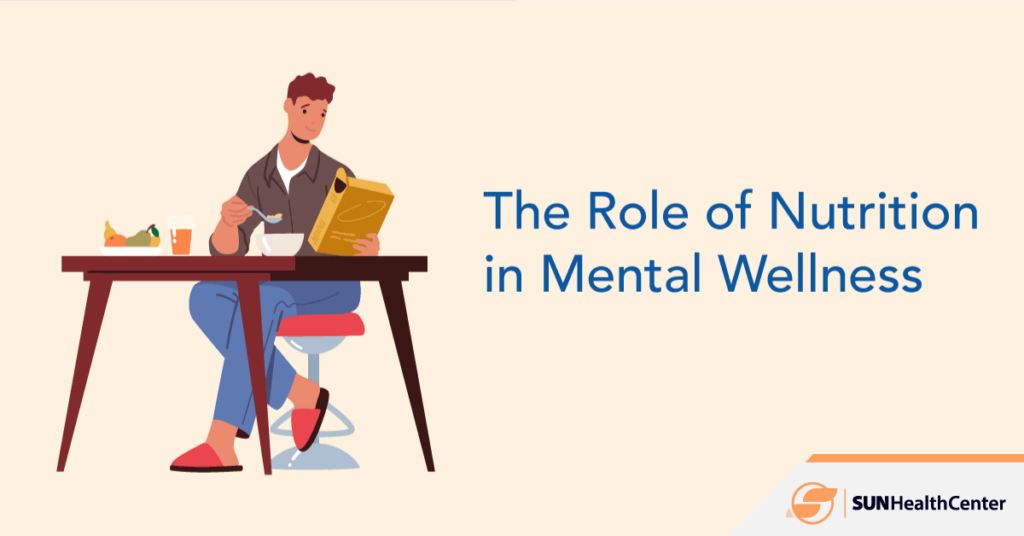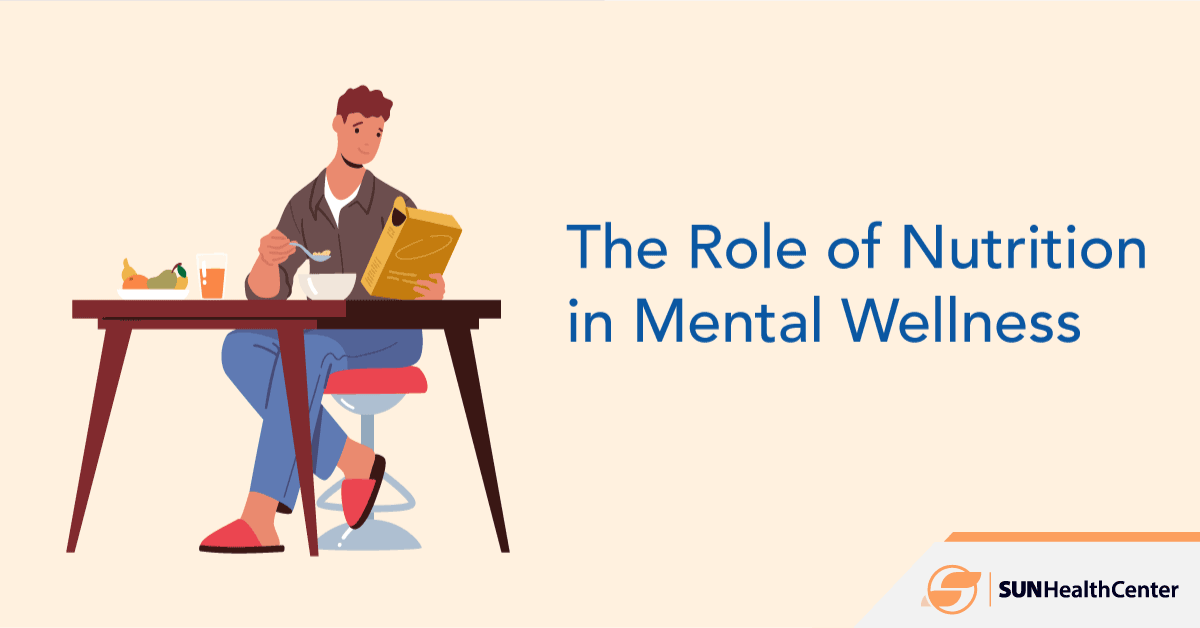
In the quest to improve your mental health, there’s one factor you might be overlooking: food. Research shows that the link between proper nutrition and mental health is highly complex, with diet possibly influencing a person’s risk of developing conditions like depression. Here’s how food affects mental health and how to use it to your advantage.
The Connection Between Proper Nutrition and Mental Health
Think of the food you eat as your body’s fuel. High-quality fuel with plenty of nutrients can give the brain the energy and strength it needs to perform effectively. Use low-quality fuel and the system might not operate as it should. The link between nutrition and mental health works much the same way. Because brains are so complex, however, it’s thought that food impacts them in multiple ways.
Take serotonin, for example. Much of this neurotransmitter, which helps regulate your mood, sleep and appetite, is produced in the gastrointestinal tract. The gastrointestinal system requires certain nutrients to produce serotonin, and if it doesn’t have them, there might not be enough to go around.
Similarly, the nervous system also relies on nutrients like amino acids and carbohydrates to function properly. Without them, it may be unable to build new neural pathways and adapt to changes inside and outside the body.
A growing collection of research supports this connection between mental health and food. Multiple studies have found nutrient-rich diets (like the Mediterranean diet) reduce the risk of developing a neurological disorder by up to 28%. Findings like this one suggest a positive correlation between strong mental health and diets high in unprocessed foods.
The Impact of Diet on Mood Disorders
According to some researchers, the relationship between diet and mental health is a bidirectional one. In other words, diet affects your mental health, and mental health can affect the way you eat. For example, a person with depression might turn to sugary, processed foods for an immediate mood boost. However, a poor diet may also increase a person’s risk of developing a mood disorder.
As mentioned above, nutrition affects multiple systems that keep the brain and body functioning. Nervous system interruptions can worsen conditions like obsessive-compulsive disorder or bipolar disorder. When the nervous system receives the acids and minerals it needs, the conditions may ease. This was the case in a 2022 study that found the Mediterranean diet reduced symptoms in men with severe depression.
Just as a healthy diet can ease mood disorders, an unhealthy diet can worsen them. Diets filled with highly processed, sugar-laden foods are associated with more severe symptoms of anxiety and depression. Though convenient, such foods lack the fiber, vitamins and other nutrients crucial to a brain-healthy diet.
Essential Nutrients for Brain Health
Shifting to a mental health diet starts with understanding what your brain needs. The following nutrients are hallmarks of brain-healthy eating:
- Omega-3 fatty acids. Omega-3s support blood flow to the brain, assist in information processing and improve the function of neurotransmitters.
- Vitamin B12 and other B vitamins. B vitamins help regulate mood. Low levels of these nutrients are commonly linked to depression.
- Vitamin E. This vitamin helps maintain brain plasticity and is also thought to preserve memory.
- Vitamin D. Vitamin D helps the brain work through complex problems and doubles as an antioxidant.
- Zinc. Zinc has several cognitive functions and is highly concentrated in the parts of the brain that process emotions. Low zinc levels have been linked to anxiety disorders.
Good Foods for Mental Health
Getting the nutrients your brain needs might mean making some changes to the way you eat. If your current eating habits are similar to those of the Standard American Diet — highly processed foods, excessive sugar and refined grains — you can start by shifting toward a more traditional diet. Traditional diets emphasize healthy, unprocessed foods like whole grains, seafood, leafy greens and other nutrient-dense foods. Diets like these contain brain-healthy vitamins and tend to benefit other parts of your body, including your heart and blood pressure.
Traditional diets are less restrictive regimens than they are lifestyle shifts. Some foods you can expect to enjoy with these eating habits include:
- Leafy greens like kale and broccoli
- Fatty fish, such as salmon or sardines
- Berries, apples and melons
- Olive oil
- Nuts, seeds and legumes
- Whole grains like farro, quinoa and wild rice
- Starchy vegetables like potatoes and corn
- Eggs and poultry
- Vegetables like cucumbers, beets and bell peppers
In addition to incorporating these foods into your diet, you can also reduce your intake of unhealthy foods that bring your mental health down. This can mean cutting back on processed foods with little nutritional value, such as potato chips, candy and soda. Keeping healthy snacks on hand can give you something to reach for when hunger strikes suddenly.
Creating a Balanced Nutrition Plan for Mental Wellness
While a mental health diet isn’t a cure-all for mood disorders, it may be able to provide you with some relief. Before truly transforming your eating style, consider meeting with your primary care physician to discuss your needs and find out how to make changes safely.
Though there are no hard-and-fast rules for what to eat or avoid to support mental wellness, you can start by paying attention to how you feel. Try reducing your intake of unhealthy foods slowly and replacing them with nutrient-rich options. Making a meal plan and writing a list before shopping can help you stick to your new eating style even when cravings take hold.
As with any lifestyle change, it may take time to make healthy eating habits your new normal. But with the right strategy and plenty of determination, both your body and your mind will thank you.
Your mental health journey isn’t one you have to take alone. At Sun Health Center, we’re here to help. Contact us today to get started.

